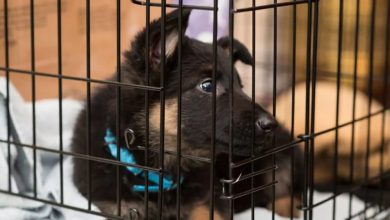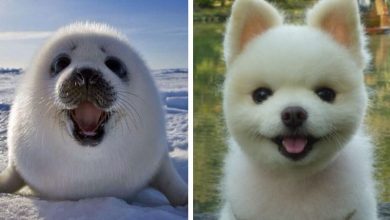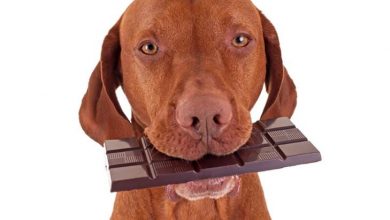Why Is My Dog Regurgitating After Drinking Water

1. Introduction
Regurgitation is a common problem in dogs and can be caused by a variety of different factors. It is important to identify the underlying cause in order to provide the best possible treatment for your pet. In this article, we will discuss why your dog may be regurgitating after drinking water and what you can do about it.
2. Causes of Dog Regurgitation
There are several potential causes of regurgitation in dogs, including gastrointestinal problems, infections, food allergies or intolerances, stress and anxiety, overeating and eating too quickly, foreign objects in the mouth or throat, liver disease or kidney failure, and bloat. Each of these causes will be discussed in more detail below.
3. Gastrointestinal Problems
Gastrointestinal problems can cause regurgitation in dogs. These include infections, parasites, inflammation of the stomach or intestines (gastritis or enteritis), ulcers, tumors, and blockages. If your dog is regurgitating after drinking water, it’s important to have them evaluated by a veterinarian to determine if there is an underlying gastrointestinal issue that needs to be addressed.
4. Infections
Infections can also cause regurgitation in dogs. Bacterial infections such as salmonella or E. coli can cause vomiting and regurgitation in dogs. Viral infections such as canine parvovirus can also cause vomiting and regurgitation. If your dog is regurgitating after drinking water, it’s important to have them evaluated by a veterinarian to determine if there is an underlying infection that needs to be addressed.
5. Food Allergies and Intolerances
Food allergies and intolerances can also cause regurgitation in dogs. Some common food allergens include wheat, corn, soy, dairy products, eggs, beef, chicken, pork, fish, and certain preservatives or artificial colors/flavors. If your dog is regurgitating after drinking water and you suspect they may have a food allergy or intolerance, it’s important to have them evaluated by a veterinarian so that they can be tested for any potential food allergies or intolerances and put on an appropriate diet plan if necessary.
6. Stress and Anxiety
Stress and anxiety can also cause regurgitation in dogs. Dogs may become stressed or anxious due to changes in their environment (such as moving to a new home), changes in their routine (such as going on vacation), separation anxiety when left alone for long periods of time, fear of loud noises (such as thunderstorms), or changes in their diet (such as switching brands of food). If your dog is regurgitating after drinking water and you suspect they may be stressed or anxious due to any of these potential causes, it’s important to have them evaluated by a veterinarian so that they can determine the underlying cause of the stress/anxiety and provide appropriate treatment if necessary.
7. Overeating and Eating Too Quickly
Overeating or eating too quickly can also cause regurgitation in dogs. If your dog is gulping down their food too quickly without properly chewing it before swallowing it can lead to them vomiting up some of their meal shortly afterwards due to their stomach being unable to handle the large volume of food all at once. If your dog is regurgitating after drinking water and you suspect they may be overeating or eating too quickly, it’s important to have them evaluated by a veterinarian so that they can recommend an appropriate diet plan for them if necessary.
8 Foreign Objects in the Mouth or Throat
Foreign objects such as sticks or stones that become lodged in the mouth or throat can also cause regurgitation in dogs if not removed promptly by a veterinarian. If your dog is regurgitating after drinking water and you suspect they may have swallowed something that shouldn’t be there it’s important to take them to the vet immediately so that they can remove any foreign objects safely before any further damage occurs.
9 Liver Disease or Kidney Failure Liver disease or kidney failure can also cause regurgitation in dogs as these conditions affect the body’s ability to process fluids correctly resulting in fluid build up which then leads to vomiting/regurgitation .If your dog is exhibiting signs of liver disease/kidney failure such as vomiting/regurgitating after drinking water ,it’s important to take them to the vet immediately so that they can receive proper treatment .
< h 2 > 10 . Bloat Bloat ,or gastric dilatation volvulus ,is another potential cause of vomiting /regurgitation . This condition occurs when a dog’s stomach becomes twisted trapping gas inside which then leads to vomiting/regurgitation .If your dog exhibits signs of bloat such as excessive drooling/panting ,distended abdomen ,and/or restlessness ,it’s important to take them to the vet immediately .
< h 2 > 11 . Conclusion In conclusion ,there are several potential causes of why your dog may be regurgitating after drinking water . It’s important to identify the underlying cause so that you can provide them with the best possible treatment .If you suspect any underlying medical condition such as infection ,food allergy /intolerance ,liver disease /kidney failure ,or bloat ,it’s important for you take your pet for an evaluation by a veterinarian right away .




